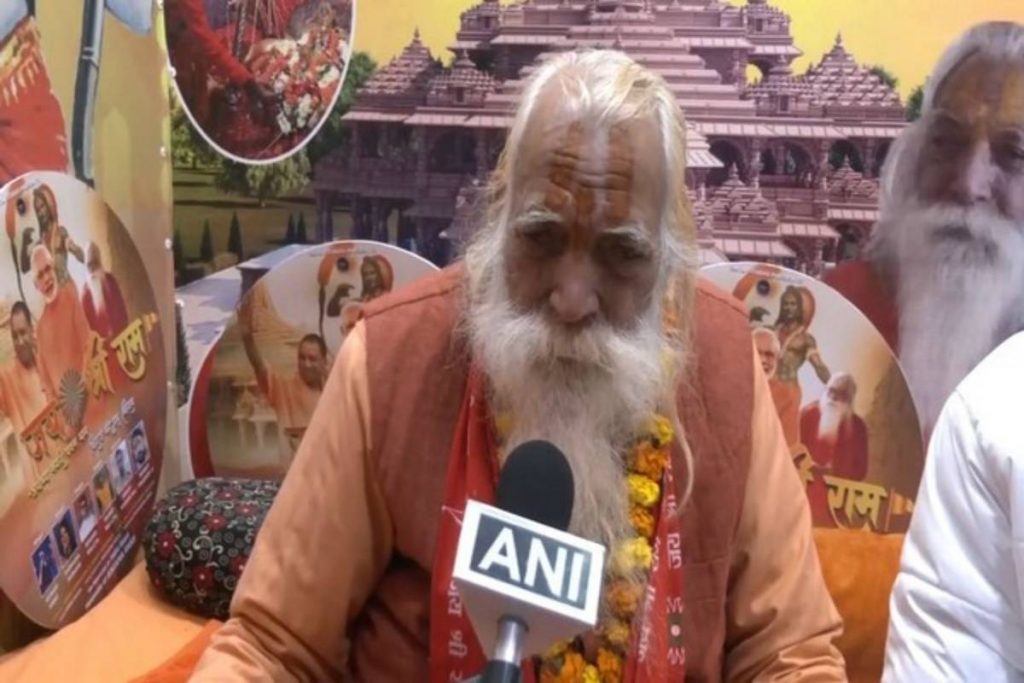Amid the countdown to the opening of the Ram Temple in Ayodhya on January 22, Shri Ram Janmbhoomi Teerth Kshetra chief priest Acharya Satyendra Das Maharaj on Friday said the ‘Pran Pratishtha’ ceremony on January 22 will mark the ritualistic transference of the soul and spirit of the deity into the idol.
Speaking to ANI on Thursday, the chief priest at Ayodhya’s Ram Janmbhoomi said, “The soul and spirit of Lord Ram, which are worshipped by one and all, will pass on to the idol through the ‘Pran Pratishtha’ ceremony. The ritual would involve the chanting of verses from the Vedas.”
Detailing the significance of the ‘Pran Pratishtha’, the seer said, “The energy of Lord Ram that we worship, which helps in our well-being and keeps us in good spirits and of sound body and mind at all times, will be transferred to the idol. So, worshipping this idol of Shri Ram Lalla will bring good health and tidings.”
On the number of days it takes for the entire Pran Pratishtha ceremony to be conducted, the chief priest said, “The Pran Pratishtha ceremony started on January 17 and will end on the 22nd. Sometimes it takes seven days, while at other times it could stretch to 11 or even 23 days.”
The seer added that the ‘Pran Pratishtha’ starts with the Kalash Yatra followed by the idol’s ‘Nagar Bhraman’ (tour around town) and a bath in the Saryu river.
“After the Kalash Yatra, the Nagar Bhraman (town visit) of the idol took place and was followed by a bath in the Saryu river. These were part of the initial rituals surrounding the ceremony. All the rituals are being performed with water from the Saryu River. The rituals will performed over six days,” the Acharya said.
Sharing further details on the rituals around the final day of the ‘Pran Pratishtha’ ceremony, the chief priest said, “On January 22, the idol will be treated to the rituals surrounding jaladivas, dugdhadivas, pushpavivas, aushadivas, and annadivas before it is bathed. Following this, the ‘Pran Pratishtha’ would be done through the chanting of Vedic verses.”
“After the ‘Pran Pratishtha’, when the idol has imbibed all the powers of the deity, it will be put in its place at the Garba Grah (sanctum sanctorum). After this, a mirror would be placed in front of the idol and kajal (kohl) would be applied (to its eyes). This is the final stage of the ‘Pran Pratishtha’ after which the idol could be visited and sighted by the devotees,” the seer added.
Explaining the significance of holding a mirror in front of the deity, the chief priest said, “The mirror will be kept in front of the idol so that the energy that goes into it from the deity Himself doesn’t come into contact with a weak or feeble along the way. The energy should be pure and unalloyed or undiminished. So Lord Ram is made to show his face in the mirror. The kohl would be applied to ward off evil spirits.”
Meanwhile, ahead of the ‘Pran Prathistha’ on January 22, the city wore a festive look and was decked up with vibrant petals on Thursday, as it awaited the return of Lord Ram after an exile spanning 500 years.
Prime Minister Narendra Modi will perform rituals to mark the ‘Pran Pratishtha’ while a team of priests, led by Lakshmikant Dixit, will perform the main rituals.
Several celebrities and other top dignitaries have been invited to the ceremony.
